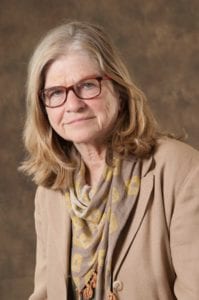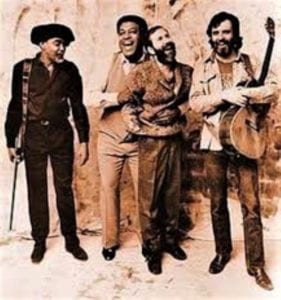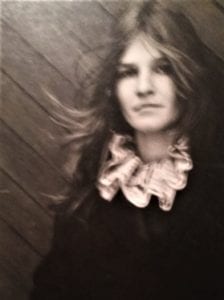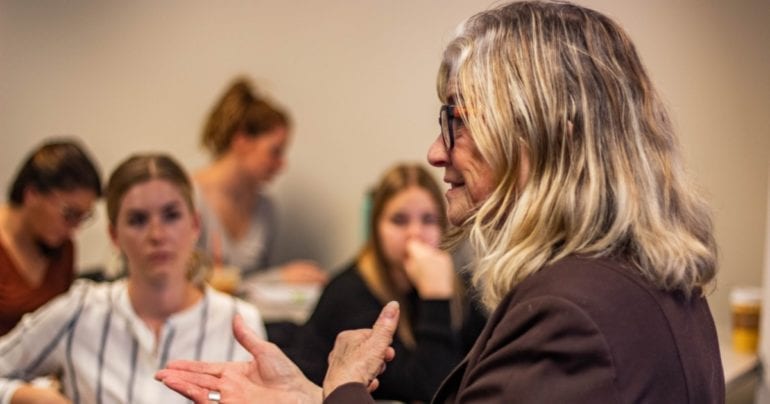Dr. Sandra Siegel is a self-described flower child who always knew that she would one day work in mental health. And though the road was long and varied, it was an enriching one. The licensed counselor and psychologist has at various times in her life been a band manager, a drug counselor and a social justice advocate. A volunteer position at the former Chicago State Hospital introduced her to the mental health field.

“I saw these people standing out by a fence asking for money and cigarettes, and I got curious, so I went in,” she explains with a fond smile. “The volunteer department put me to work right away. I was on a closed unit, and it was really mind blowing! There were 250 men…yelling, talking to themselves, etc. I thought to myself: ‘Should I go in there?’ But I stepped over the threshold and discovered that I loved it.”
The affinity she discovered stayed with her as her path veered in an entirely different direction. The Blues were calling, Chicago Blues specifically. Just out of high school at the time, she immersed herself in the genre, and the counterculture of the 1960s that would produce some of America’s first integrated bands. She was also married to a musician.
“My husband Corky and other young, white musicians were joining older black Delta musicians and playing together here in Chicago. It was such a hopeful time and feeling. The philosophy was peace and love.”
Her husband fronted the band Siegel-Schwall. As their manager, she claimed no experience, but managed to book the band at venues like the Fillmore in San Francisco and get them engagements with some of the era’s biggest stars, including Jimi Hendrix and Santana.

“It was quite an amazing time. We got to play with very talented musicians and Janis Joplin became a good friend…I was really fortunate to experience that.”
Still, the desire to help others called to her and she trained at the Haight–Ashbury Clinic to help those addicted to acid. “Being on the road cemented my goal. I knew in my heart I was going to come back and work with mentally ill people, I just didn’t know when.”
After ten years, she came back to Chicago and worked to get an associate’s degree in nursing. Going on to complete a doctorate in psychology, Dr. Siegel began an impressive career – one in which she always sought to make a positive difference. She worked as the director of community health at one of the city’s busiest trauma hospitals, and started the justice program at a mental health agency where staff went into jails and prisons to work with people with serious mental illness. She even worked with the Chicago Public Defender’s Office.
“I was an expert mitigator. It was my job to work with the client, and to tell their story to the judge, jury or states attorney. I had to tell them why they shouldn’t be put to death.”

Now an associate professor in Counseling Psychology, Dr. Siegel still makes service to community a part of her life, and involves her students. She offers group therapy for men at Breakthrough Urban Ministries, an agency devoted to helping individuals and families affected by poverty, and mixed group therapy at Above and Beyond Family Recovery Center, an organization which strives to help individuals struggling with substance abuse. “I have my students create the groups, and they spend their summers running group therapy. It helps them to see the world through a different lens, and that’s important for anyone who wants to use their career to help others.”
_____________________________________________________________________________________________
Learn more about The Chicago School of Professional Psychology
If you would like to learn more about our academic programs, fill out the form below to request more information or you can apply today through our application portal.

